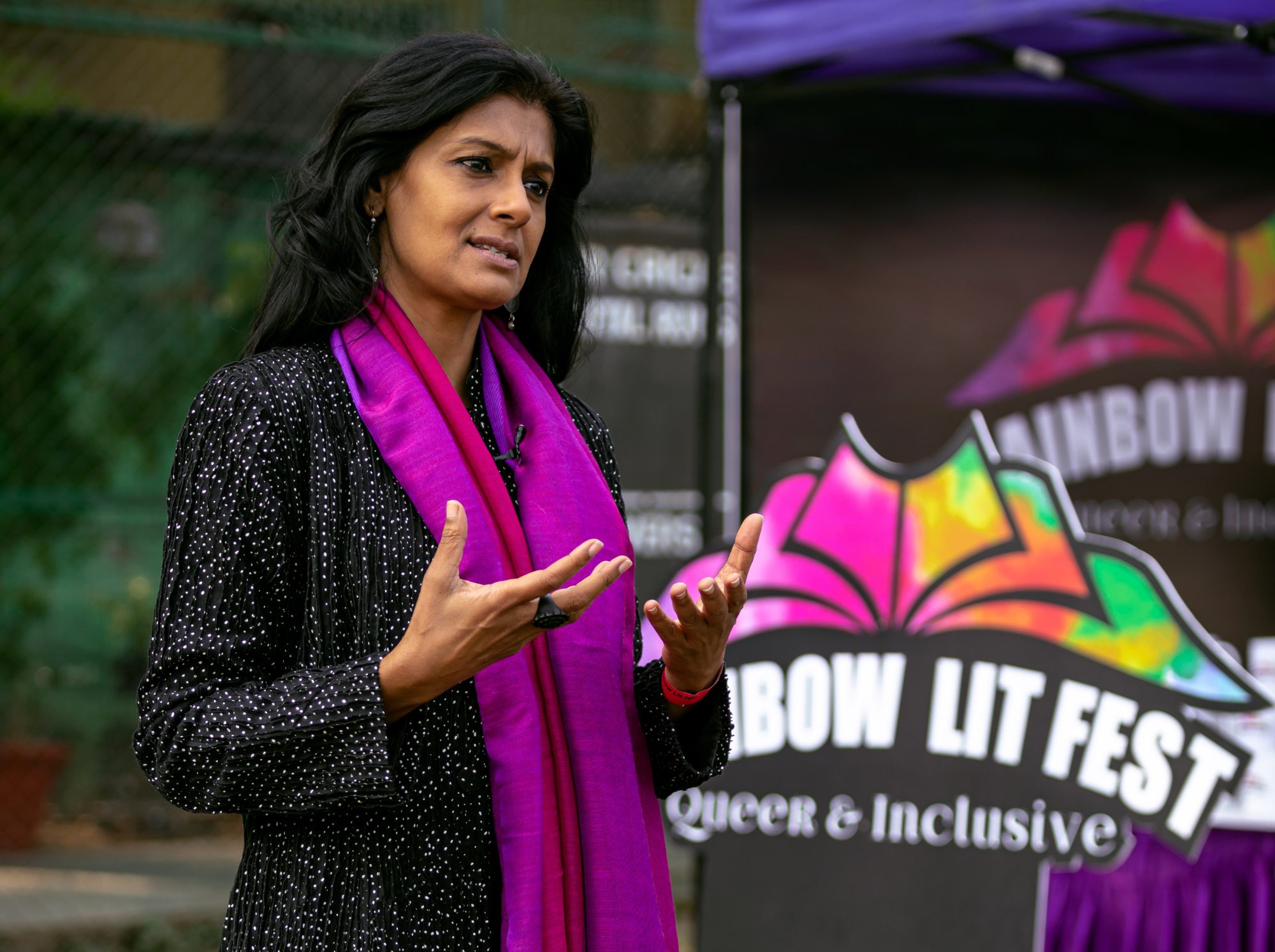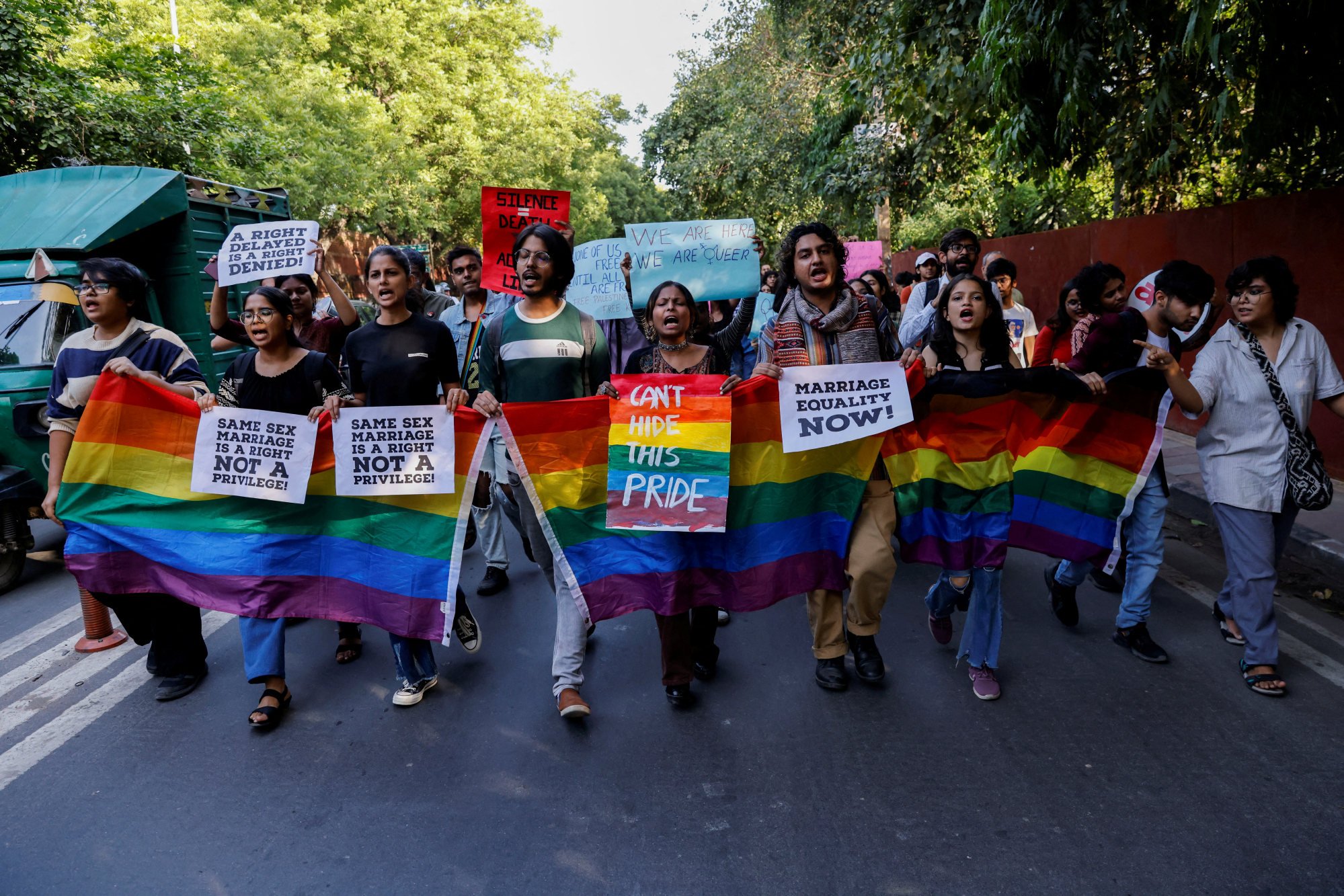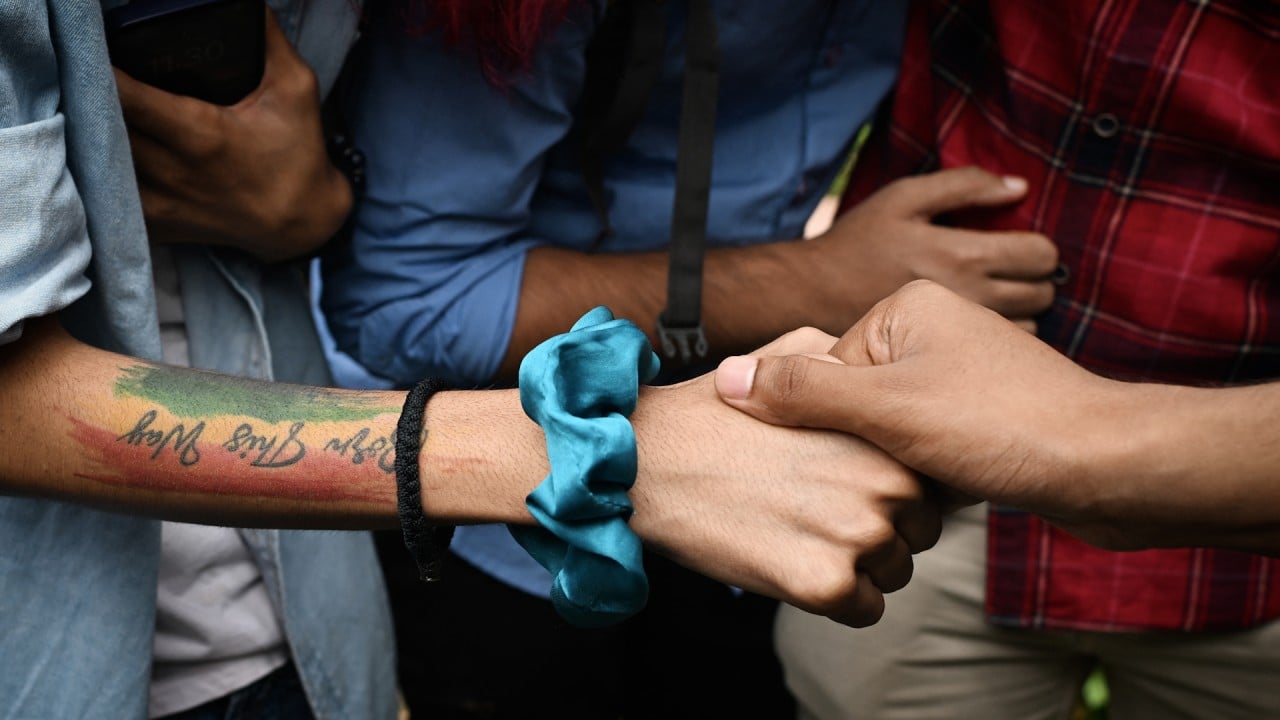After India’s top court refuses to legalise gay marriage, a Delhi queer literary fest hopes to ‘reclaim our space’
In another Pew survey published in June this year, 53 per cent of adults in India said they favoured legalising same-sex marriage.
In good company: a feminist library in Nepal shifts attitudes a book at a time
In good company: a feminist library in Nepal shifts attitudes a book at a time
The shift in attitude has been gradually reflected in the country’s immensely popular film industry, which increasingly features sympathetic portrayals of LGBTQ characters. In stark contrast to the attacks made by conservatives and political groups against films such as 2006’s lesbian drama Fire, audiences have now come to accept mainstream films like the recent Aligarh and web series such as Made in Heaven and Rainbow Rishta, which show the lived experiences of LGBTQ characters.
“I see the shift happening in the way community members are portrayed,” said Anjali Gopalan, one of India’s leading LGBTQ rights advocates and the founder of the Naz Foundation (India) Trust. “These stories have made a lot of difference, and there is obviously an audience for that change.”
Despite the rise in LGBTQ-centric films and web series in recent years, writers say queer genres of Indian literature are still quite limited in terms of reach and representation.

Niladri R Chatterjee, author of Entering the Maze: Queer Fiction of Krishnagopal Mallick, said queer narratives are mostly written in English, with plots in urban settings. He added that although publishers are keen to sign more LGBTQ authors to “raise their queer credentials”, most are inclined to publish those who write in English so they can market their books abroad.
This year, Queerbeat, an independent collaborative journalism project, was launched by Indian journalist Ankur Paliwal to fill the void by exclusively covering under-reported LGBTQ issues, including diverse stories about the community from outside urban areas. But Chatterjee said many publishers are still unwilling to take risks in publishing queer content because they do not want to jeopardise their reputations and want to “play safe”.
“There must be publishers who are more willing to take risks,” said Chatterjee, an English professor at the University of Kalyani in West Bengal. “The more queer literature is published, the more there is bound to be greater variety. Regional language media also need to take more risks.”

Events like the Rainbow Lit Fest aim to amplify the voices and visibility of the country’s diverse LGBTQ community, partially in the hopes of bringing publishers and writers together.
Rangnekar said this year’s festival will gather around 60 speakers and performers, including specialists in lesser known genres such as Bhojpuri drag, a traditional Indian form of drag.
The literary festival will encompass much more than books, with sessions on law, language, history, mythology, parenting, social hierarchies and racism within the LGBTQ community.
“We are looking at things we are uncomfortable talking about,” Rangnekar said. “We are creating the space and encouraging conversations. We need that because our history has been erased, we have no reference points, we are struggling with all the changes that have taken place.”
Such conversations are already part of the literary works – both fiction and non-fiction – that have been shortlisted for the festival’s Rainbow Awards for literature and journalism this year. They include Neel Patel’s novel Tell Me How to Be, a story about a mother and her gay son, Chatterjee’s Bengali translation titled Entering the Maze: Queer Fiction of Krishnagopal Mallick, and K Vaishali’s Homeless, which talks about the struggles of growing up as a dyslexic, lesbian woman in India.
Chatterjee said it was important to underscore that such queer narratives are routinely ignored or tokenised at other domestic literature festivals, while the Rainbow Lit Fest puts them front and centre.
“The festival is important because it shines a light on queer literature,” Chatterjee said. “However, my long term hope is that there may come a time when such festivals will no longer be necessary because the mainstream will wake up to the importance of queer literature.”
‘Both mum and dad’: pregnant Indian excited to become a father
‘Both mum and dad’: pregnant Indian excited to become a father
But before that can happen, Gopalan believes the country must first learn how to treat all of its citizens as equals. She said the repeal of discriminatory laws is the first step towards creating an inclusive society.
“We need laws to protect, and the legal framework need to respond to, the emerging needs of the LGBTQ community,” she said. “That goes hand in hand with changing attitudes.”


